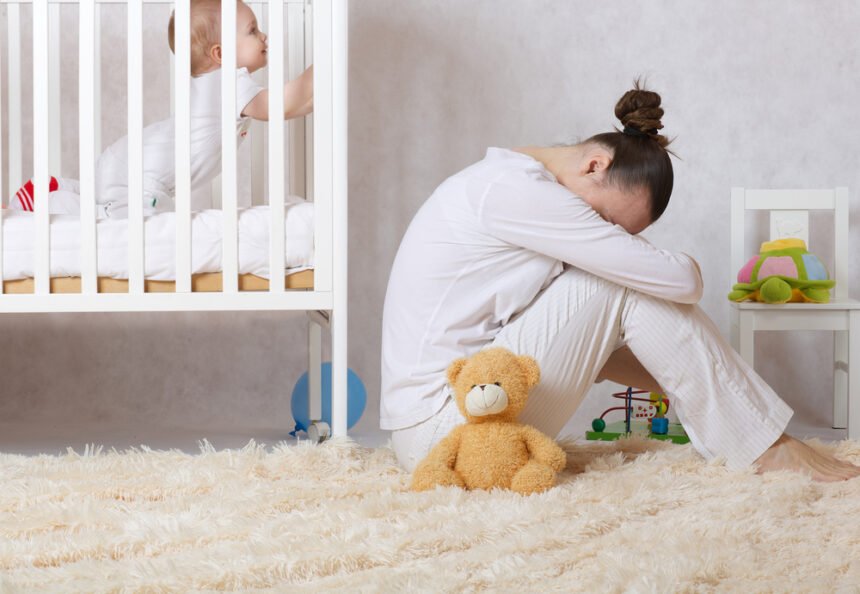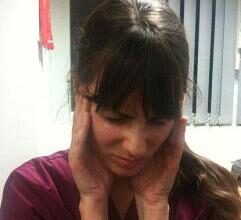Having a baby is a huge life change. For many mothers, pregnancy is something they?ve looked forward to for years. For others, it?s almost a disappointment or burden. Regardless of how you feel about your pregnancy or childbirth experience, you can still develop postpartum depression. This condition affects many women and is more serious than most people realize.
1. Baby Blues Affect Most Women
Mood swings aren?t uncommon after having a baby. Too little sleep and changing 15 diapers a day doesn?t exactly make for the happiest mom, you know. It comes as no surprise, then, that 70-80% of all new mothers experience some negative feelings after giving birth. Within four to five days, most moms are suffering the full effect of these baby blues. Symptoms may include impatience, anxiety, fatigue, insomnia, sadness and irritability.
While most moms do experience baby blues, symptoms usually disappear within two weeks of giving birth. If they last longer, the mother may have postpartum depression. Consult your doctor if you think you may have PPD. They?ll be able to offer a proper diagnosis and corresponding treatment plan for depression.
2. PPD Is the Most Common Complication After Pregnancy
Postpartum depression is a severe form of clinical depression that affects one in seven women, making PPD the most common complication after pregnancy. A history of depression, birthing complications and a general lack of support may predispose some women to PPD. However, any woman may develop symptoms and receive a diagnosis. Symptoms are similar to those of baby blues, but longer and more intense. Eventually, they may cause thoughts of suicide, self-harm and general hopelessness.
New mothers may also develop other mental illnesses as a sufferer of PPD. For instance, some moms may turn to substances like drugs and alcohol to cope instead of seeking professional help. Abusing substances to boost energy, fall asleep, self-medicate and relieve stress are the most common reasons why women develop PPD and subsequent addictions. Ultimately, this dependency can create serious, long-lasting issues for new moms and their families.
3. Late-Onset is Possible
While most cases of PPD occur within the first few weeks after childbirth, many mothers may begin experiencing symptoms up to a year later. This late-onset or delayed PPD can even appear later in some women depending on hormonal fluctuations after having their baby.
A general lack of support or sense of loneliness in the months following childbirth can also cause late-onset PPD. As the husband returns to work and help from family and friends disappears, it can be easy to feel alone and slip into a depressive state. Therefore, it?s important to seek help and support if you need it. Otherwise, you risk affecting your child?s expressive language development ? among other behaviors and skills.
4. Men Get Depressed, Too
Women aren?t the only ones that can experience the baby blues or PPD. In fact, half of all men whose partners have PPD are depressed, too. Depression in both parents can have devastating consequences for the family?s relationships with one another.
Sadly, the myth that men should be stoic and tough prevents many from seeking help when they experience symptoms of PPD. Instead of recognizing depression and speaking to a medical professional, they suppress their emotions and let their wife?s depression overshadow their own. However, dads owe it to themselves ? and their family ? to be healthy and enjoy fatherhood to its fullest. Therefore, seeking help and finding treatment is imperative.
5. Some Women Develop Psychosis
PPD can lead to other mental health conditions, including postpartum psychosis ? or puerperal psychosis. This illness affects roughly one to five in 1000 women, which may seem like a relatively low rate. However, the condition is still significant from a global health perspective.
Symptoms of psychosis can be more intense than those associated with PPD. Delusions, hallucinations, aggressiveness, paranoia and a complete disconnection from reality are not uncommon. Sadly, this condition carries a 4% risk of infanticide and a 5% risk of suicide. Therefore, seeking immediate medical attention is critical. With the proper treatment, you can recover, protect your family and enjoy being a mother.
Prevention and Treatment
Certain kinds of therapy and supplements can minimize your risk of developing PPD and other postpartum illnesses. For instance, talking to a counselor before or during your pregnancy can help you understand your feelings and learn how to cope with them in a healthy way. Practicing emotional intelligence before having your baby will help you recognize symptoms of PPD so you can seek treatment sooner. Omega-3 fatty acids may also prevent PPD and promote a healthier pregnancy.
If you?re already experiencing symptoms of PPD or other mental health conditions, talk to your doctor. They can provide a diagnosis and treatment options so you can get back to enjoying your life as a parent. Counseling, support groups, medicine and lifestyle changes can all help prevent and treat PPD, so odds are there?s a recovery plan out there for you.










